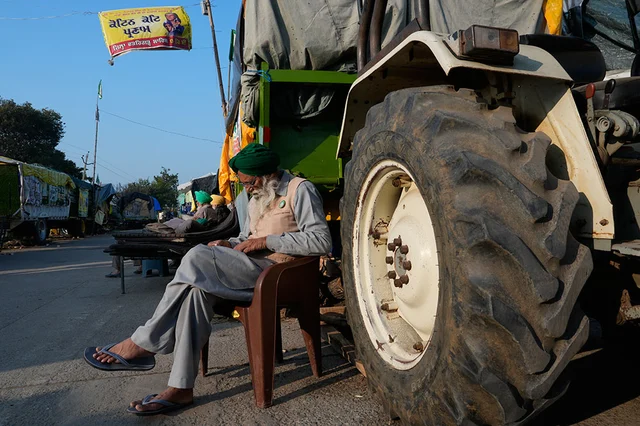
As the government begins marking land for new infrastructure projects across Jammu and Kashmir, residents are voicing concerns about potential impacts on land ownership and livelihoods. Several projects have sparked opposition in the Kashmir Valley, with locals apprehensive about the consequences for their agricultural and horticultural land.
In South Kashmir’s Pulwama district, many residents are resisting the proposed acquisition of 4,834 kanals (approximately 600 acres) of fertile horticultural land to establish a new campus for the National Institute of Technology (NIT) Srinagar. Residents argue that the project could be completed using much less land, emphasizing that the orchard area is among the region’s few remaining zones for almond cultivation, a vital agricultural resource.
On December 24, 2024, the Deputy Commissioner of Pulwama issued an order forming a revenue officer team to prepare the necessary land transfer documentation. Local residents, who have cultivated the land for generations, believe their rights are being overlooked in this process. Similar unease surrounds plans to establish satellite colonies along the Srinagar Ring Road and the construction of a railway line connecting Bijbehara to Pahalgam, a popular tourist spot in South Kashmir.
Waheed-ur-Rehman Para, a People’s Democratic Party (PDP) leader and MLA from Pulwama, has voiced his opposition to the extent of land earmarked for the NIT campus. While supportive of establishing the institute, Para questions the necessity of acquiring 5,000 kanals of land for the project. “The concern is why so much land is required when 500 kanals would suffice,” he stated.
In his first press conference after taking office, Jammu and Kashmir Chief Minister Omar Abdullah addressed the land acquisition concerns. He assured that productive agricultural land would not be arbitrarily taken. Abdullah mentioned that a delegation from Pulwama had shared their reservations about the project. “If the local population opposes the project, we will consider relocating it to a more suitable location,” he added, emphasizing the need to balance development with farmland preservation.
Former Chief Minister and PDP President Mehbooba Mufti has also questioned the government’s plans for the Ring Road and associated satellite townships, seeking greater transparency. Mufti criticized the proposal for 30 satellite townships along the Srinagar Ring Road, highlighting its potential to encroach on prime agricultural and horticultural land. “Kashmir is already a region with limited land resources, and such plans contradict the Srinagar Master Plan and the land-use policy,” she noted.
Two additional railway projects, the Awantipora-Shopian-Kulgam line and the Bijbehara-Pahalgam line, are also causing concern. Local farmers fear these projects will claim vast apple orchards, jeopardizing their primary source of income.
The apple industry is a cornerstone of Kashmir’s economy, employing millions and contributing about 10% to the region’s GDP. This sector’s growth can be traced back to land reforms in the 1950s, which expanded apple cultivation beyond Sopore in North Kashmir. By 2020-21, apple cultivation had grown to cover 3,35,000 hectares, producing 19.85 lakh metric tons annually. However, these orchards, particularly in South Kashmir’s Anantnag district, are now under threat from the proposed railway expansion.
Mushtaq Ahmad, a 50-year-old farmer from Dirhama village in Bijbehara, fears losing his 18 kanals of orchard land to the railway project. “This orchard has sustained my family for over 40 years. Losing it would destroy our livelihood,” he lamented. Ahmad’s income supports his parents, wife, and four children, funding their education and daily needs.
Other farmers share similar fears. Ghulam Hassan, another orchard owner, expressed dismay over the potential loss of his land. “Years of hard work have gone into building this orchard to secure a future for my family. This project has left us anxious and sleepless,” he said. Revenue officials have already begun land demarcation, adding to the community’s stress. Experts also warn that extending the railway line to Pahalgam could harm ecologically sensitive areas.

